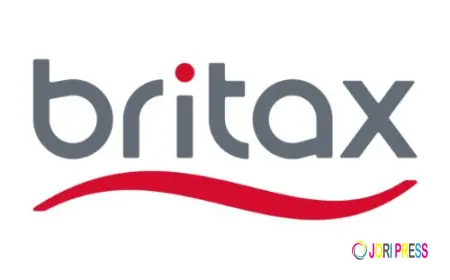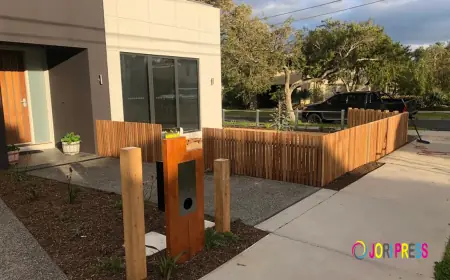Understanding The Role Of Humor In Healthy Senior Aging
Explore how humor supports healthy aging in seniors by boosting mood, easing stress, and strengthening emotional and social well-being.

Aging brings with it a wide range of experiences, some joyful, some challenging. For seniors, maintaining physical health is only part of the equation; emotional well-being plays an equally vital role. One of the most powerful yet often overlooked tools for promoting healthy aging is humor. Whether it's a light-hearted conversation, a favorite comedy show, or shared laughter with family, humor has profound effects on the mind, body, and spirit. More than just a momentary escape, laughter contributes to a balanced and fulfilling life in the senior years.
Humor is especially important in helping seniors navigate stress, chronic conditions, or loneliness. In home settings where aging adults receive care, humor can be integrated into daily routines to create a more joyful atmosphere. For those benefiting from Elderly care in the comfort of home in Santa Ana, humor serves as a valuable emotional outlet. Caregivers often use light conversation, gentle jokes, or fun games to lift spirits and build trust. This positive interaction fosters a nurturing environment, proving that compassion and laughter go hand in hand when supporting seniors.
Psychological Benefits of Humor
The psychological benefits of humor are widely recognized in both clinical and social settings. Laughter reduces the production of stress hormones such as cortisol and adrenaline. These hormonal shifts help calm the nervous system and ease anxiety. Seniors who laugh regularly often report a more optimistic outlook, even when facing health challenges or personal losses.
Humor also helps alleviate symptoms of depression. Lighthearted experiences encourage emotional release and can disrupt negative thought patterns. When seniors feel emotionally overwhelmed, humor provides relief without requiring deep discussion or analysis. It becomes a natural coping tool that promotes resilience.
Additionally, humor increases a sense of control. Seniors who can laugh at small mistakes or daily frustrations regain confidence and emotional flexibility. They become less rigid, more accepting of life’s unpredictability, and more willing to adapt to change. In this way, humor empowers seniors to approach aging with grace and lightness.
Physical Health and Laughter
Laughter is more than a psychological remedy; it delivers measurable physical benefits. When a person laughs, their heart rate increases, muscles relax, and oxygen intake improves. This “internal workout” boosts cardiovascular function and stimulates circulation. Seniors who laugh often may experience fewer blood pressure spikes and reduced risks of heart-related issues.
Additionally, laughter enhances the immune response. It increases the production of antibodies and activates protective immune cells, making the body more resistant to illness. This is particularly important for seniors, who often face weakened immune systems.
Another significant benefit is pain management. Laughter triggers the release of endorphins, ns natural feel-good chemicals that reduce the perception of pain. While it doesn’t replace medical treatment, humor can complement therapies for conditions like arthritis, neuropathy, or post-surgical discomfort. Even ten minutes of joyful interaction can lessen pain perception and improve mood throughout the day.
Moreover, laughter can serve as a gentle form of physical activity. The act of laughing contracts abdominal muscles and stimulates the lungs, offering mild exercise without strain. For seniors who are unable to participate in more vigorous activities, this light stimulation provides health benefits in a fun and accessible way.
Social Connection and Cognitive Support
One of the most powerful aspects of humor is its ability to connect people. Seniors often face social isolation, especially if they live alone or are far from family. Humor encourages interaction and shared experience. Whether through group activities, storytelling, or watching a funny movie together, laughing with others builds bonds and fosters belonging.
Social laughter also encourages trust. When seniors feel comfortable joking or engaging in playful conversation, they are more likely to open up emotionally. This kind of trust is particularly important in caregiving relationships, where open communication enhances the quality of support.
In terms of cognitive function, humor stimulates the brain. It activates several areas related to memory, problem-solving, and creativity. Seniors who engage with humor-based content like crossword puzzles with jokes, funny short stories, or humorous TV shows tend to maintain sharper cognitive skills.
Humor also supports language and recall abilities. Seniors who tell jokes or share amusing memories engage both short-term and long-term memory processes. This kind of active brain function strengthens mental flexibility and can help slow cognitive decline.
Additionally, laughing through life’s ups and downs teaches seniors to approach challenges with creativity and optimism. It promotes the use of imagination and lateral thinking, both of which contribute to better cognitive health and problem-solving abilities.
Encouraging Humor in Daily Senior Life
Creating a humor-friendly environment doesn’t require grand gestures. It begins with small, thoughtful choices. Caregivers and family members can encourage humor by sharing funny stories, watching comedies together, or playing games that involve wit and creativity. The key is making laughter part of the daily routine.
Books with light-hearted narratives, cheerful comics, or humorous memoirs are also great tools. Seniors who enjoy reading can explore genres that blend wisdom with wit. Audiobooks or radio programs with comedic elements work well for those with vision challenges.
In group settings or senior centers, consider organizing light comedy nights, joke-sharing circles, or funny storytelling events. These moments not only spark joy but also bring peopltogether safelyly ainclusivelyway. Even gentle teasing among friends, when respectful, can strengthen bonds and provide emotional relief.
It's also important to tailor humor to the individual. Everyone has a unique sense of humor, and what amuses one person may not resonate with another. Caregivers and loved ones should observe what kind of humor makes the senior smile, whether it's slapstick, satire, puns, or personal anecdotes.
For seniors with dementia or cognitive impairments, humor can still be accessible. Visual humor, simple jokes, or familiar comedic characters can evoke positive reactions without requiring complex understanding. These lighthearted moments offer comfort and familiarity, often triggering memories of happier times.
Conclusion
Humor is not a luxury; it’s a necessity for healthy senior aging. It supports emotional resilience, physical wellness, social engagement, and mental sharpness. As seniors navigate the natural challenges of aging, humor serves as a reliable companion that lightens burdens and enriches daily life.
When caregivers, family members, and communities prioritize laughter, they promote healing and happiness. By weaving humor into the fabric of everyday routines, seniors feel more alive, more connected, and more hopeful.
Encouraging seniors to laugh dailyy whether through a favorite show, shared joke, or funny memory, is one of the simplest ways to support graceful aging. In the end, humor reminds us that joy has no age limit, and laughter truly is timeless medicine.
What's Your Reaction?
 Like
0
Like
0
 Dislike
0
Dislike
0
 Love
0
Love
0
 Funny
0
Funny
0
 Angry
0
Angry
0
 Sad
0
Sad
0
 Wow
0
Wow
0



















































